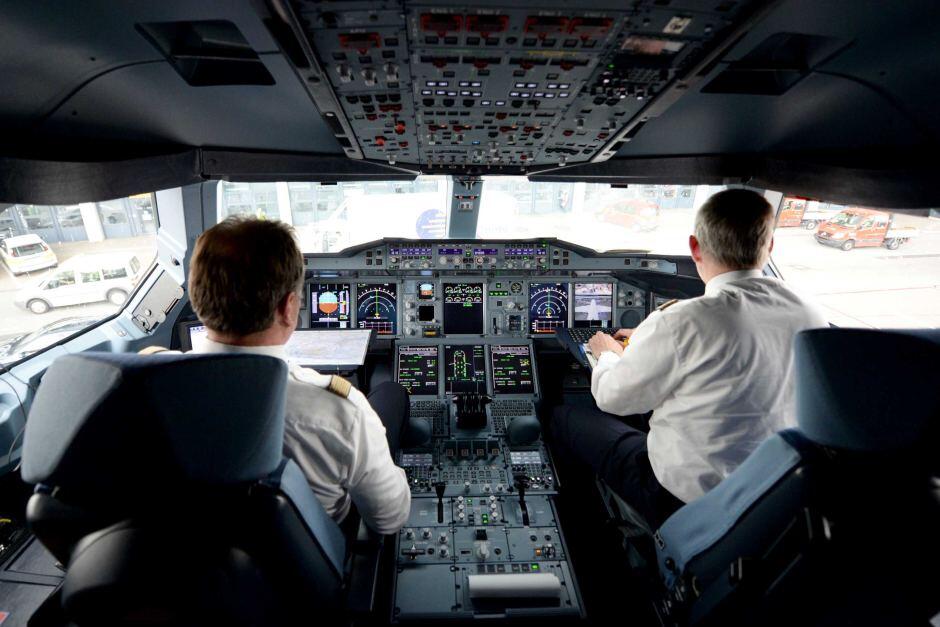Australia’s aviation industry has been trying to change a culture among pilots of under-reporting mental health conditions, particularly since the issue came into the spotlight during the Germanwings disaster in March last year.
Key points:
- Germanwings disaster prompted more stringent mental health assessment regime but no regulatory changes made
- Doctors say pilots under-report mental health conditions out of fear of losing medical licences and jobs
- Pilots say fear of being honest about mental health issues “has always been there”
Andreas Lubitz, a co-pilot for Germanwings, deliberately flew his plane into a mountainside in March 2015, killing himself and all 144 passengers and six crew.
Lubitz suffered from depression and suicidal tendencies and the incident sparked an overhaul of how pilots’ mental health is assessed in Europe.
In Australia, the Civil Aviation Safety Authority (CASA) said health examiners had updated internal assessment procedures, but no regulatory changes had been made.
Eric Donaldson, a CASA medical examiner who assesses pilots in the Darling Downs region of Queensland, said rigorous mental health assessments had made pilots fearful about losing their medical licences and jobs if they spoke freely.
“I think there’s been pressure on CASA since we had the Germanwings accident and there were others,” Dr Donaldson said.
“People are probably much more conscious of our responsibility than we might have been before.”
Kate Manderson, the president of the Australasian Society of Aerospace Medicine (ASAM), said Australia already had a robust and effective regulatory system.
“If we see a pilot or air traffic controller that we’re concerned [about], we are protected under the law in terms of reporting that directly to CASA, and that’s always been the case,” Dr Manderson said.
“And the mental health assessment has always been part of the way we assess our pilots through questionnaire and mental state examination as well.”
David Booth, president of the Australian Federation of Pilots (AFP), said CASA reneged on a tough approach.
“What CASA decided they won’t be doing is any sort of aggressive psychometric assessment, which was initially proposed after Germanwings,” Captain Booth said.
“I think the reason for that is there’s a view that you could run those sorts of tests on people but ultimately you probably won’t detect what you’re looking for.”
Pilots too afraid to come forward
Dr Manderson and Dr Donaldson both said there had been increased scrutiny and awareness about pilots’ mental health and that it had consequences.
“I’m not foolish enough to believe that every pilot that I see tells me the truth about his medical conditions,” Dr Donaldson said.
But Captain Booth said the culture of pilots under-reporting had always been there, generated by fear of losing their medical licence and jobs.
“Pilots have always been fearful about coming forward,” he said.
“I don’t believe Germanwings has driven pilots underground.
“If we come down hard on pilots who do come forward then we can guarantee that that’s exactly what will happen.”
Joseph Wheeler, the aviation counsel to the AFP, said there was also fear about loss of licence insurance for pilots.
“For example in the Germanwings situation there was a fear, reported by the French authorities, of the pilot about whether he would be covered in the event he had to be suspended from work because he wouldn’t meet his medical standards anymore,” Mr Wheeler said.
“So we need to have better engagement and better policies amongst these loss of licence insurers.”
Mr Wheeler said programs such as peer pilot support frameworks were helping pilots come forward and deal with potential problems.
“Pilots are the only ones who really understand the very peculiar, high pressure and demanding requirements of the aviation profession,” he said.
“What peer pilot support does is encourage other pilots to look after themselves, to accept imperfections in what is often an environment that doesn’t deal well with any imperfections, and helps pilots to identify concerns with each other and seek help.
“What we’re really advocating is the aeronautical equivalent of mates looking after mates.”
Source: ABC, AFP











